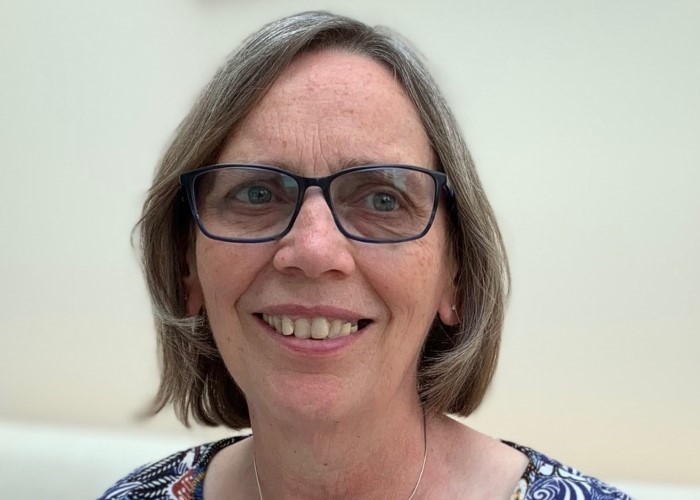Opting in to take part in a clinical trial has helped Hilary to realise the importance of research and motivated her to do more to represent patient views in breast cancer research.
Opting in to take part in a clinical trial has helped Hilary to realise the importance of research and motivated her to do more to represent patient views in breast cancer research. Eventually, this led to Hilary helping to choose research projects to be funded by the Breast Cancer Now Catalyst Programme.

Being part of a trial made me realise the importance of research
I had breast cancer in 2009. At the time of diagnosis, I also opted to join the IMPORT LOW clinical trial. It was looking at whether women with early breast cancer and low risk of local recurrence would benefit from partial breast radiotherapy instead of whole breast treatment.
Being part of the trial made me realise the importance of research. The many thousands of people who have taken part in clinical studies over many years have improved the outcomes and experience of treatment that patients have now. This is what motivated me to get involved more.
I found an advert in a national newspaper inviting patients to represent their views at the National Cancer Research Institute and to work with clinicians and scientists. To my surprise, my application was accepted. About a year after, I joined the Independent Cancer Patients' Voice, and benefited immensely from the mentoring and training that they have.
Over the years my involvement has grown. Now I am on several clinical trial management groups, and I have spent three years as a public contributor to the NIHR Research for Patient Benefit programme. I am also involved in other projects where a patient voice is needed.
It is important that the patient voice is heard
I already had some involvement with Breast Cancer Now when I was asked to join the Breast Cancer Now Catalyst Programme Grants Committee. I accepted because I think it is important that the patient voice is heard together with those of the scientists and clinicians.
I found that choosing the research projects was a collaborative experience and, as a patient advocate and public member of the committee, I felt fully included.
Applications from researchers were first reviewed by Breast Cancer Now for completeness and each was sent to several experts in the field for peer review. Applications that were to be considered by the grants committee on the day were divided between the two patient representatives. We read them in advance before the committee meeting.
We were looking at the quality of the application, which includes whether is it well-written and easy to understand. We then assessed how the projects could benefit breast cancer patients down the road. If the applications were clinical trials, we looked to see what the patients need to do in the trial. We asked questions that someone who has experienced breast cancer would ask: is this acceptable to breast cancer patients? Would someone with breast cancer be willing to join the trial?
Importantly, all members of the grants panel (including us) had an equal vote in scoring the grant applications, ensuring that the patient voice is heard.
I also think that it is important to look at projects on the whole, considering all the different aspects. This includes the science, the team, the feasibility of delivering the project within the budget and the timelines. But the most important part is thinking about what will benefit patients.
I hope that the developments we have seen over the last 20 years will be matched in the next 20
My main hope is that, with the help of the Catalyst Programme, we can find new ways to use drugs that will bring improved outcomes for patients. I also hope that we can further understand how breast cancer develops and bring new ideas for the treatment of breast cancer patients. I hope that the developments we have seen over the last 20 years will be matched in the next 20 years, so that more breast cancer patients have better outcomes. Particularly that we can find ways to treat the cancers that currently have poor outcomes.
Even the sheer numbers of applications received for the Catalyst Programme show the need for these kinds of funding streams. It has been fantastic to have Pfizer provide their drugs for the programme as well as funding, and freedom for the committee to choose which research projects to support.
You can find out more about the Breast Cancer Now Catalyst programme and the projects it funds by visiting our information pages.